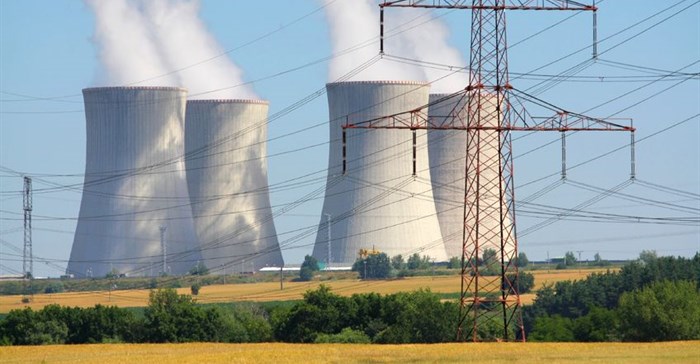
Top stories




As a young person and a nuclear physicist, I've watched in despair as our youth are being used in this debate, especially by the well-resourced anti-nuclear lobby, which claims, mostly without evidence, that nuclear power will bequeath trillions of rand worth of debt to future generations.
The emotion-laden debate has obscured the benefits of what is potentially an exciting phase in the life of our 22-year-old nation. Notwithstanding the fact that we are going through uncertain times now, including prospects of a ratings downgrade within weeks, young people still have a lot to celebrate and a lot to live for.
Nuclear technology and the new nuclear build programme will happen in our lifetime. If handled responsibly, the programme will bring sustainable jobs for many of our youth.
The government, Eskom and the South African Nuclear Energy Corporation must put the youth at the front and centre of this programme through skills development and retention strategies for the industry.
The country is facing challenges in the nuclear space. There is constant scrutiny on the build programme by all interested parties. We welcome this, as nuclear is highly regulated, locally and internationally.
One of the challenges is plugging the nuclear skills gap. The youth need to be ready with specialised skills required for the nuclear build and operation.
In today's competitive economy, the vast gap between talented professionals and the industry at large has left the talent pool uninformed about the job market, the competencies and qualifications required, and current job opportunities.
Quality education and industry training relevant to the demands of SA's economic needs are essential.
Since the early 1990s, most of the focus of nuclear skills development in SA has been positioned at university graduate level and this has been a successful endeavour, with many graduates obtaining advanced degrees in nuclear science and engineering. Although essential for research and innovation, advanced academic qualifications are not sufficient for economic development based on technological and industrial advancement.
To realise true technological advancement, the country requires a large capacity of highly competent and skilled artisans and technicians. More than 70% of the nuclear jobs to be created through the proposed nuclear programme will be artisans and technicians.
Unlike technologically advanced countries such as the US, China, Russia, Germany, France, South Korea and Japan, SA has lost much of its technical and artisanal base over time. The dedicated technical trade schools have either been shut or are in relatively poor condition.
For a nuclear programme of this magnitude, as many as 15,000 artisans such as welders, boilermakers, plant operators, carpenters, electricians and pipe-fitters will be required. The quality of their workmanship would have to be of the highest standard.
The development of these skills requires at least two years of on-the-job training and mentoring by master craftsmen with decades of experience. Investment in these skills will help facilitate the diversification away from our reliance on traditional commodities and non-tradable services.
These artisans and technicians' skills are in high demand not only in SA but in the rest of the world. Having a highly skilled labour force would attract investors to establish more manufacturing facilities in SA, creating more jobs to grow the economy.
In many countries, a nuclear build programme is used to contribute to skills development and to facilitate manufacturing capability. For SA's programme to succeed, we need the mass-based skills development initiative to start at once.
This could start with sending about 200 of our current craftsman to nuclear facilities in other countries to get practical training for two years.
After their return, they could train local students at newly established artisanal development schools (about 10 of these with an intake capacity of 600 students a year), similar to the Nuclear Skills Development Centre at the South African Nuclear Energy Corporation, which currently develops some of the best artisans.
To reach a target of at least 15,000 of these skilled artisans by 2020 (when the peak of the nuclear programme will be upon SA), there needs to be a rapid implementation of an artisanal development programme, which should be developed jointly with suppliers of nuclear systems.
Given the advanced and portable nature of their skills, these artisans and technicians would be easily employable in many industries such as the water and sanitation, aviation, renewable energy, chemical, pharmaceutical, and the petrochemical sectors, which the Department of Energy is expanding through a refinery project and the shale gas opportunity.
Source: Business Day

For more than two decades, I-Net Bridge has been one of South Africa’s preferred electronic providers of innovative solutions, data of the highest calibre, reliable platforms and excellent supporting systems. Our products include workstations, web applications and data feeds packaged with in-depth news and powerful analytical tools empowering clients to make meaningful decisions.
We pride ourselves on our wide variety of in-house skills, encompassing multiple platforms and applications. These skills enable us to not only function as a first class facility, but also design, implement and support all our client needs at a level that confirms I-Net Bridge a leader in its field.
Go to: http://www.inet.co.za